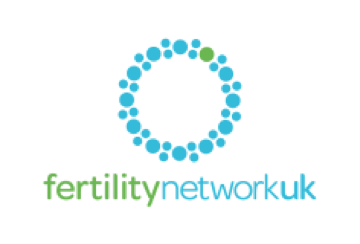A guide to fertility medications for PCOS
We get asked a lot of questions about fertility medications in our live online clinics and have developed this guide to assist your understanding of the types of medications prescribed to women diagnosed with PCOS to help induce ovulation and hence, promote a natural pregnancy.

As women with PCOS you may have irregular or non-existent ovulation (also known as anovulation), which means that you occasionally or hardly ever ovulate. Medication that are commonly used to help release an egg from the ovaries include the following:
Clomiphene Citrate
Clomiphene Citrate (commonly referred to as Clomid), is a well-established and effective treatment and one of the most widely used of all fertility drugs. It is often the first course of treatment for women presenting with either irregular or absent periods in the case of polycystic ovarian syndrome.
It is a medication prescribed to help stimulate the ovaries by blocking the oestrogen hormone which tricks your body into producing more of the FSH (follicle-stimulating hormone). FSH promotes the healthy growth of eggs in your ovaries to maturity, ready for release and LH triggers one or more of these eggs to release within a cycle.
If your fertility consultant has prescribed Clomid, a low dose of 25mg to 50mg is used and can be increased in further cycles if required. It may also be prescribed by your consultant before a fertility treatment such as intrauterine insemination (IUI).
It induces ovulation in 65-80% of cycles. The chances of pregnancy are 10-20%. However, there is a risk of multiple pregnancy with its use.
Letrozole
Letrozole is another oral ovulation inducing agent. It is an aromatase inhibitor and acts by decreasing the production of oestrogen by blocking the aromatase enzyme. This is turn increases FSH production.
It induces the growth of one follicle and hence there is a lower risk of multiple pregnancy and ovarian hyperstimulation with its use. Recent data suggests a better chance of ovulation, pregnancy and live birth compared to Clomiphene Citrate with its use. It may be used in those who are resistant to Clomiphene Citrate.
If your fertility consultant has prescribed Letrozole, a low dose of 2.5mg to 5mg is used and can be increased in further cycles if required. It may also be prescribed by your consultant before a fertility treatment such as intrauterine insemination (IUI).
Gonadotrophins
Gonadotrophins are hormones that are produced naturally by the pituitary gland in our brains. However, when used in the treatment of infertility, these are synthesized in a laboratory and should be administered as a subcutaneous injection (into the tummy), on a daily basis, usually in the evenings at the same time for around 11-12 days.
Gonadotrophins are an injectable form of the FSH hormone (although some may have LH). When injected, they directly stimulate the growth of the follicles in the ovaries that contain the eggs, so that several eggs are produced.
Gonadotrophins are most likely to be recommended if you are trying to conceive but have not responded to oral treatment.
What are the risks
The risks of ovarian stimulation are multiple pregnancy and ovarian hyperstimulation syndrome (OHSS). Hence, one needs to have regular ultrasound monitoring when taking the medication.
Introducing
Buy Now Pay Later
Payments in instalments. No credit checks! Quick applications! Select at checkout
Working with






